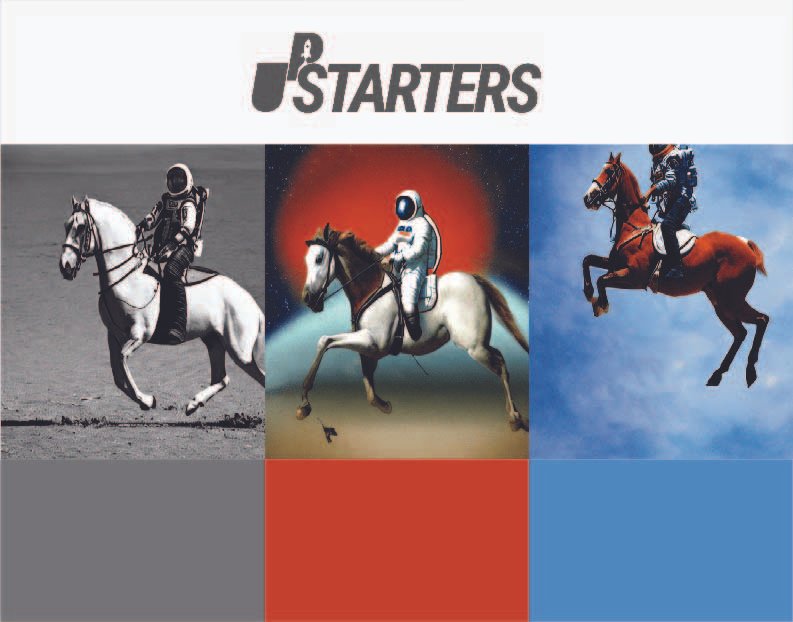Stable Diffusion is an online image generator that can produce a Van Gogh-like portrait of Beyoncé in seconds, as well as a cyberpunk cityscape in the style of the 18th-century Japanese artist Hokusai, and a complex alien world straight out of science fiction. Since its public release only two weeks ago, it has quickly become one of several popular AI-powered text-to-image generators, along with DALL-E 2.
Three company officials have confirmed that the company behind Stable Diffusion is currently in talks with investors to raise $100 million. Two people familiar with discussions between Coatue and the London-based startup Stability AI say the latter has received initial interest from the investment firm. Then, according to two sources, negotiations with Lightspeed Venture Partners to invest at a valuation of up to $1 billion began.
At a valuation of up to $100 million, the London-based startup is said to have raised at least $10 million in SAFE notes (a type of convertible security popular among early-stage startups). Stability AI’s prior round of accuracy was independently verified by a fourth directly credible source. Former hedge fund manager turned CEO Emad Mostaque provided a significant portion of the company’s initial funding. News of the prior financing was heretofore unreported.
Stability AI‘s technology is open source and can be used for free. According to three different sources, the company does not yet have a solid business model. Mostaque said last month in an interview with Yannic Kilcher, a machine learning engineer and YouTube personality, that he has already signed partnerships with “governments and leading institutions” to sell the technology.
“We’ve negotiated massive deals,”
He says, “so we’d be profitable at the door compared to most money-losing large corporations.” According to one of his tweets, training the first version of Stable Diffusion cost only $600,000 (a small portion of the company’s total budget).
Mostaque, now 39, was born in Bangladesh but grew up in England. After receiving a master’s degree in mathematics and computer science from Oxford University in 2005, he spent the previous 13 years working for hedge funds in the United Kingdom. According to his LinkedIn profile, he founded Symmitree in 2019 with the goal of lowering the cost of technology for low-income people.
Late in the year 2020, he established Stability AI with the intention of creating free and open-source artificial intelligence (AI) software. The website claims to be part of a larger infrastructure for AI-powered products and services, of which text-to-image generation is just one part. It also funds open-source research groups that are creating linguistic, acoustic, and biological resources.
Stable Diffusion, developed with LMU Munich and video editing startup RunwayML, has been receiving the most attention. The April release of OpenAI’s DALL-E 2 and the July release of Midjourney‘s eponymous product sparked public awareness of AI image generators this year. Google unveiled Imagen, an internal text-to-image system, in May.
According to Mostaque and his contemporaries, current AI art is just the beginning. These technologies have the potential to improve photorealism, video quality, and animation.
Concerns have been raised about the ethics and legality of training these image generators by sifting through billions of images from the internet without the permission of the copyright holder. After an AI-generated piece of art won first place at a Colorado arts competition last week, a heated debate flared up online.
It’s a double-edged sword for Stability AI, whose open-source approach gives users full code access. According to the company’s website, it is “building open AI tools” to democratise access to AI. OpenAI was founded as a nonprofit by Sam Altman and Elon Musk, but it became a for-profit business after Microsoft invested $1 billion in 2019. AI experts criticised the company for focusing on commercialising its technology rather than making it more widely available.
According to Mostaque, the for-profit nature of Stability AI was chosen so that open-source research could benefit a larger audience. Last month, he assured TechCrunch that the company operates independently.
“Except for our 75 employees, no billionaires, big funds, governments, or anyone else in control of the company or the communities”
Mostaque could offer up to 10% of the company to new investors at a $1 billion valuation. Venture capitalists who invest large sums of money in a startup frequently demand board seats in exchange for their investment. Stability AI has yet to reveal whether it will follow in the footsteps of Lightspeed, which manages $10 billion, and Coatue, which manages $73 billion, by appointing representatives to its board of directors.
